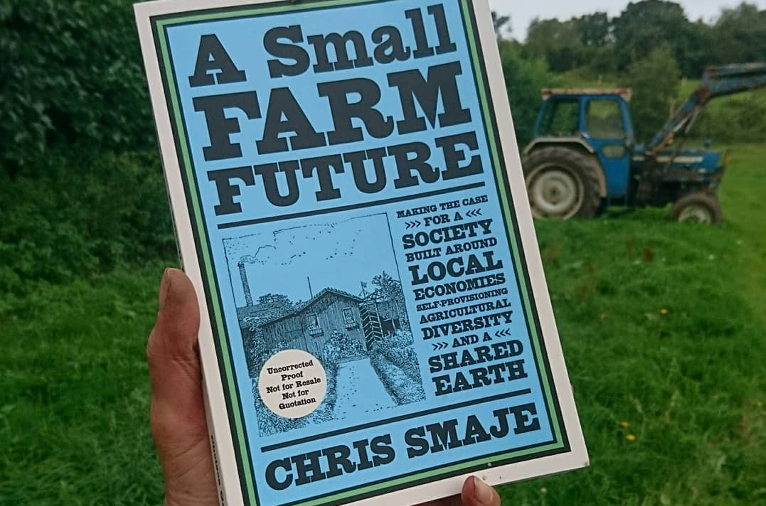Time to move on to a brief discussion of Chapter 19 of my book A Small Farm Future in this blog cycle.
The chapter is called ‘Reconstituted peasantries’, which derives from a chapter in another book, Caribbean Transformations, by the late Sidney Mintz, an anthropologist who was one of my teachers during my brief and ill-fated sojourn at graduate school in the US. I wrote an obituary of Sid a few years back, and what I said in it in some ways formed the basis of Chapter 19, so I’m kind of retracing old ground here. But I think it bears repeating, especially because it’s quite relevant to some of the discussion under recent posts.
I basically want to make two points in this post, maybe two and a half. The first is to note that some of Sid’s informants when he was a young anthropologist working in Puerto Rico in the 1940s had been born into slavery. That’s stayed with me – there’s only the bridge of a single lifetime between me and legal mass chattel slavery dedicated to a globalized commodity food system. I find much to ponder there in relation to food, farming and political futures. Not particularly that the return of Caribbean-style chattel slavery is imminent. In fact, I think that’s unlikely. Maybe more likely is the kind of industrial-manufacturing enslavement that occurred in Nazi Germany. Anyway, as I said, much to ponder here … some other time.
The second point is that Sid’s work and the Caribbean region in general are a rebuke to notions of purity and authenticity. Caribbean societies were forged violently out of African, American and European precursors, but they created their own unique syntheses from the encounter that weren’t simply derivative of or inferior to these antecedents. At a time when anthropologists were still seeking the authenticity of ‘primitive’ peoples as a mirror to modern society, Sid was among the early generation of anthropologists who found a different and perhaps better mirror in their own backyard that broke with such notions of purity.
This Caribbean rebuke has several dimensions. The one that I emphasise in my book chapter is that peasantries in the region had to pretty much invent themselves anew as best they could in difficult circumstances when, with emancipation, they often had callously dumped upon them the need to figure out how to make a livelihood. I’ve spent a fair bit of time on this blog over the years musing about the concept of peasantries and wondering how relevant historical peasant societies are to the small farm future that I believe is to come. Increasingly, I’ve come to think not very (or at least that the way scholars have analysed them isn’t very…)
But inasmuch as the small farm societies of the future will be peasant societies I think they’ll be ‘reconstituted’ peasant societies in a sense inspired very loosely by Sid, rebuilding themselves out of the declining structures of an earlier economic system in the absence of an ‘authentic’ prior peasant tradition – albeit, I confess, in a very different historical situation.
A second rebuke to authenticity I want to raise in relation to Caribbean peasantries is the tendency of most political traditions to dismiss peasantries as yesterday’s people, soon destined to be swept away by more authentic kinds of political identity such as proletarian, urbanite, modern or whatever. There is not, of course, some kind of unified global peasant experience, but the same is true of any other kind of political or economic identity. So no more pure political identities, please. And no more heralding the end of peasantries in the face of something more ‘modern’. Caribbean peasantries are an artefact of the modern global economic system, and political identities based around local land-based livelihood-making is no less authentic than any other. I’ve banged on enough over the years on this site about the case for (agrarian) populism, so I won’t belabour it here. It’s a common pastime across many political traditions to identify the category of people who are the ‘real’ agents of political change. Particular categories do come to the fore in given historical situations, but no single one is any more real than another.
A final rebuke to authenticity: the Caribbean region is fertile ground for questioning the notion of authentic culture. One example would be the shared and sampled musical forms of the kind celebrated in cultural theorist Dick Hebdige’s Cut ‘n’ Mix, as compared to the exaltation of the individual creative genius often preferred in modernist European culture. Another would be a religion like the much-maligned Haitian vodou (Haiti has received more than its fair share of maligning over the years – in part, I’m sure, because the first free revolutionary republic in the modern world wasn’t supposed to be engineered by enslaved plantation workers, according to standard modernist narratives). Anyway, with its mixture of African-origin deities, Christianity and its own distinctive characteristics, vodou is another cut ‘n’ mix but sui generis cultural melange. The old joke has it, given Haiti’s small educated elite, that the country is 90 per cent vodou and 100 per cent Catholic. Much to ponder in that one liner too…
Towards the end of my book chapter I try, with limited success I fear, to turn this cut ‘n’ mix sensibility into an account of how we might build new agrarian societies bottom-up. I hope to come back to this in my next project, and do it better. So small farm future, the politics, is to come – with a healthy dose of inspiration from the uprooted and inauthentic. But first there’s the small matter of another book to write about…






